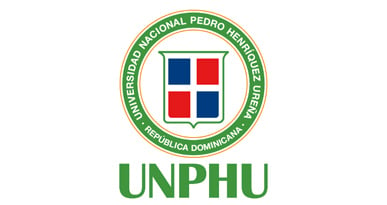Mostrar el registro sencillo del ítem
Análísis del desarrollo del mercado hipotecario dominicano basado en la ley 189-11
| dc.contributor.advisor | Puentes Puente, Angel | |
| dc.contributor.advisor | Cambier, Enrique | |
| dc.contributor.author | Lantigua, Carlos Miguel | |
| dc.contributor.author | Díaz Alcántara, Yasmin | |
| dc.contributor.other | Universidad Nacional Pedro Henríquez Ureña (UNPHU). Vicerrectoría de Postgrado, Investigación y Asuntos Internacionales. Escuela de Graduados | |
| dc.date.accessioned | 2019-05-10T14:14:42Z | |
| dc.date.available | 2019-05-10T14:14:42Z | |
| dc.date.issued | 2018 | |
| dc.identifier.citation | Lantigua, C. M., y Díaz Alcántara, Y. (2018). Análísis del desarrollo del mercado hipotecario dominicano basado en la ley 189-11 (Tesis de maestría). Recuperado de http://repositorio.unphu.edu.do/handle/123456789/1083 | es_ES |
| dc.identifier.uri | https://repositorio.unphu.edu.do/handle/123456789/1083 | |
| dc.description.abstract | La siguiente investigación tiene como principal objetivo analizar el desarrollo del mercado inmobiliario dominicano basado en la implementación de la Ley 189-11 para el desarrollo del mercado hipotecario y el fideicomiso en la República Dominicana. De esta manera examinar las incidencias de esta ley para contrarrestar el crecimiento del déficit habitacional dominicano. Para la realización de esta investigación se procedió a describir el marco legal del fideicomiso, el cual está fundamentado en la Ley 189-11, Reglamento 95-12 y la Norma General 02-12, así como los aspectos generales del fideicomiso y las ventajas que representa esta figura jurídica para las inversiones en la República Dominicana, se expone a su vez, las fiduciarias creadas en el país, las cuales son una herramienta fundamental para el desarrollo de los negocios y el desarrollo del mercado inmobiliario Dominicano. También se plantea el impacto económico de la Ley 189-11 y se muestra el déficit habitacional desde sus orígenes, tomando en cuenta los proyectos de los gobiernos de turnos en los períodos que comprende este análisis, partiendo desde el criterio que los gobernantes tienen la responsabilidad directa para crear las condiciones con el fin de enfrentar la problemática que representa el déficit habitacional dominicano. Asimismo, se procedió a la aplicación de cuestionarios, encuestas y entrevistas para la validación de las informaciones recabadas. Con la obtención de los datos conseguidos a través de los instrumentos utilizados se obtuvieron los hallazgos con los cuales se plantearon las recomendaciones y las mejoras oportunas que sirvan para contrarrestar el incremento del déficit habitacional dominicano, el cual representa un problema que se ha incrementado desde los períodos comprendidos alrededor de 1950 hasta la actualidad, representando un obstáculo importante para la expansión poblacional del país. | es_ES |
| dc.description.abstract | The following research has as main objective to analyze the development of the Dominican real estate market based on the implementation of Law 189-11 for the development of the mortgage market and the trust in the Dominican Republic. In this way, examine the impact of this law to contain the growth of the Dominican housing deficit. In order to carry out this investigation, we proceeded to describe the legal framework of the trust, which is based on Law 189-11, Regulation 95-12 and General Standard 02-12, as well as the general aspects of the trust and the advantages that This legal figure is represented for investments in the Dominican Republic, and fiduciaries created in the country are exposed, which are a fundamental tool for the development of business and the development of the Dominican real estate market. It also raises the economic impact of Law 189-11 and shows the housing deficit from its origins, taking into account the Projects of the governments of shifts in the periods covered by this analysis, starting from the criterion that the rulers have the responsibility direct to create the conditions in order to face the problem that represents the Dominican housing deficit. Likewise, we proceeded to the application of questionnaires, surveys and interviews to validate the information gathered. With the obtaining of the data obtained through the instruments used, the findings were obtained with which the recommendations and the opportune improvements were proposed that serve to counteract the increase of the Dominican housing deficit, which represents a problem that has increased since the periods ranging from 1950 to the present, representing an important obstacle for the population expansion of the country. At the same time, expand knowledge regarding the benefits granted by Law 189-11. | |
| dc.format.extent | 112 p. | |
| dc.language.iso | es | es_ES |
| dc.publisher | Santo Domingo: Universidad Nacional Pedro Henríquez Ureña | es_ES |
| dc.rights | Attribution-NonCommercial-NoDerivatives 4.0 Internacional | * |
| dc.rights.uri | http://creativecommons.org/licenses/by-nc-nd/4.0/ | * |
| dc.source | Tesis de maestría | |
| dc.subject | Contabilidad | es_ES |
| dc.subject | Auditoría | es_ES |
| dc.subject | Fideicomiso | es_ES |
| dc.subject | Hipoteca | es_ES |
| dc.subject | Préstamos hipotecarios | es_ES |
| dc.subject | Ley 189-11 | es_ES |
| dc.subject | República Dominicana | es_ES |
| dc.subject | Vivienda | es_ES |
| dc.title | Análísis del desarrollo del mercado hipotecario dominicano basado en la ley 189-11 | es_ES |
| dc.type | Thesis | es_ES |



